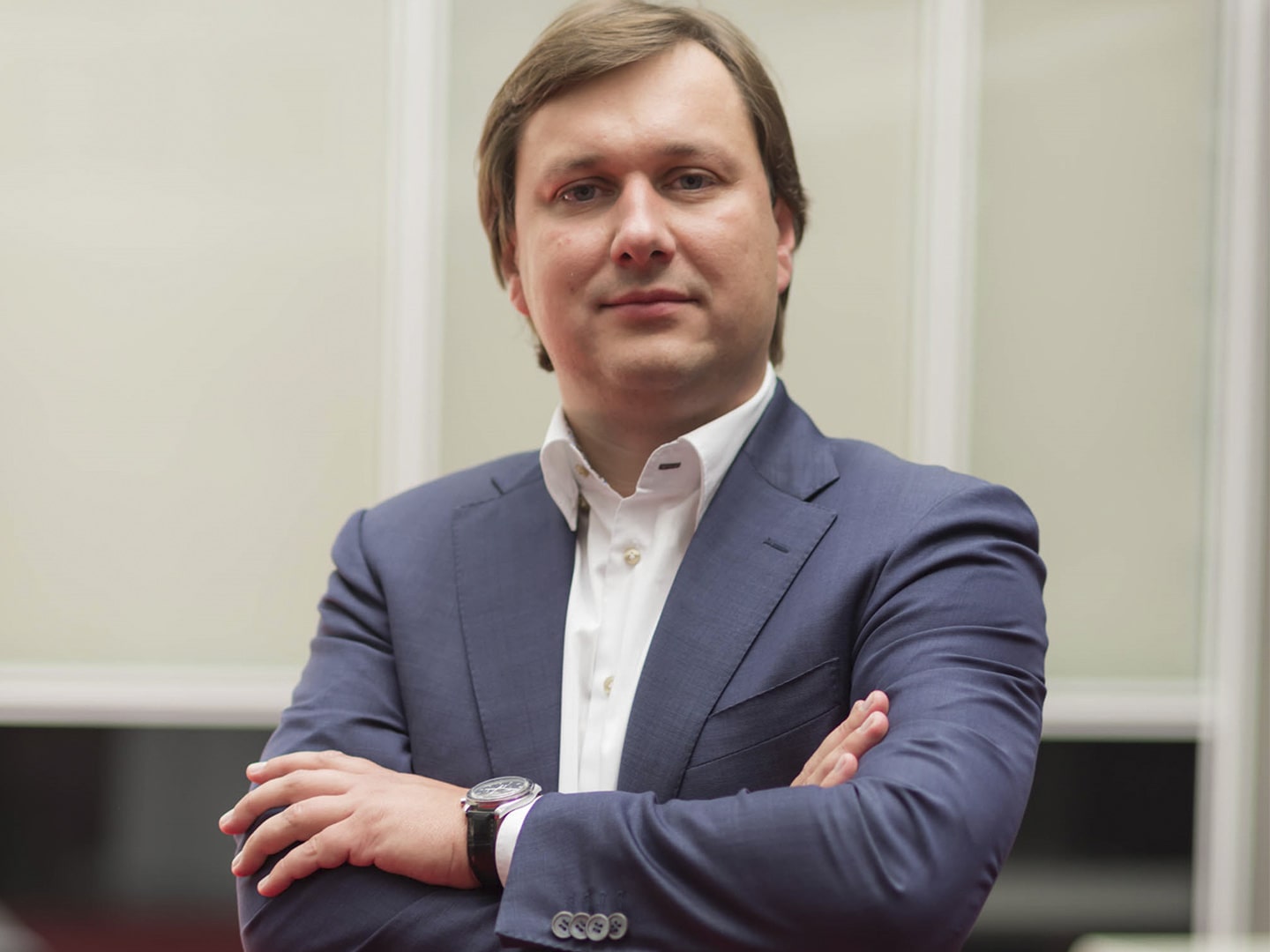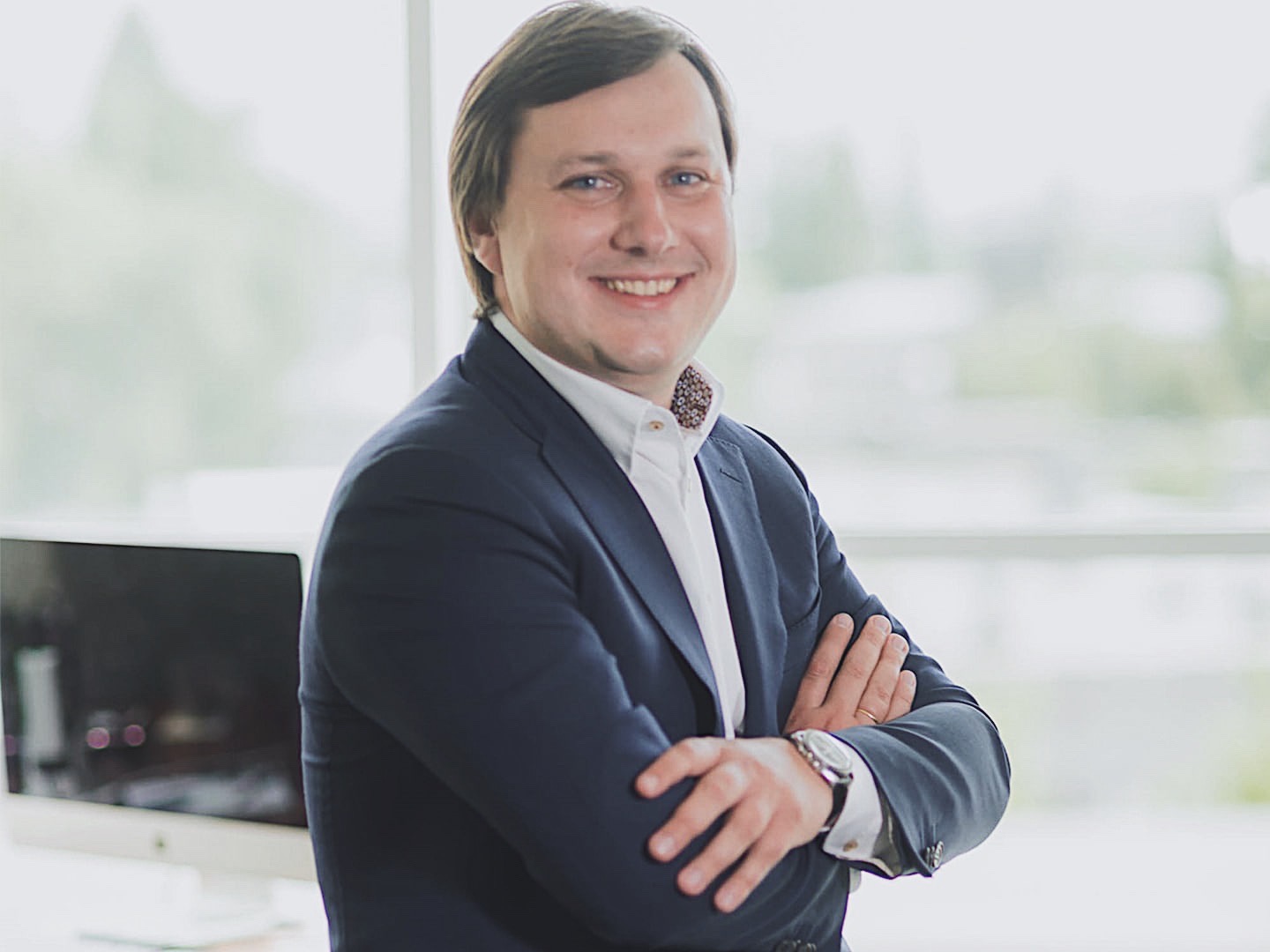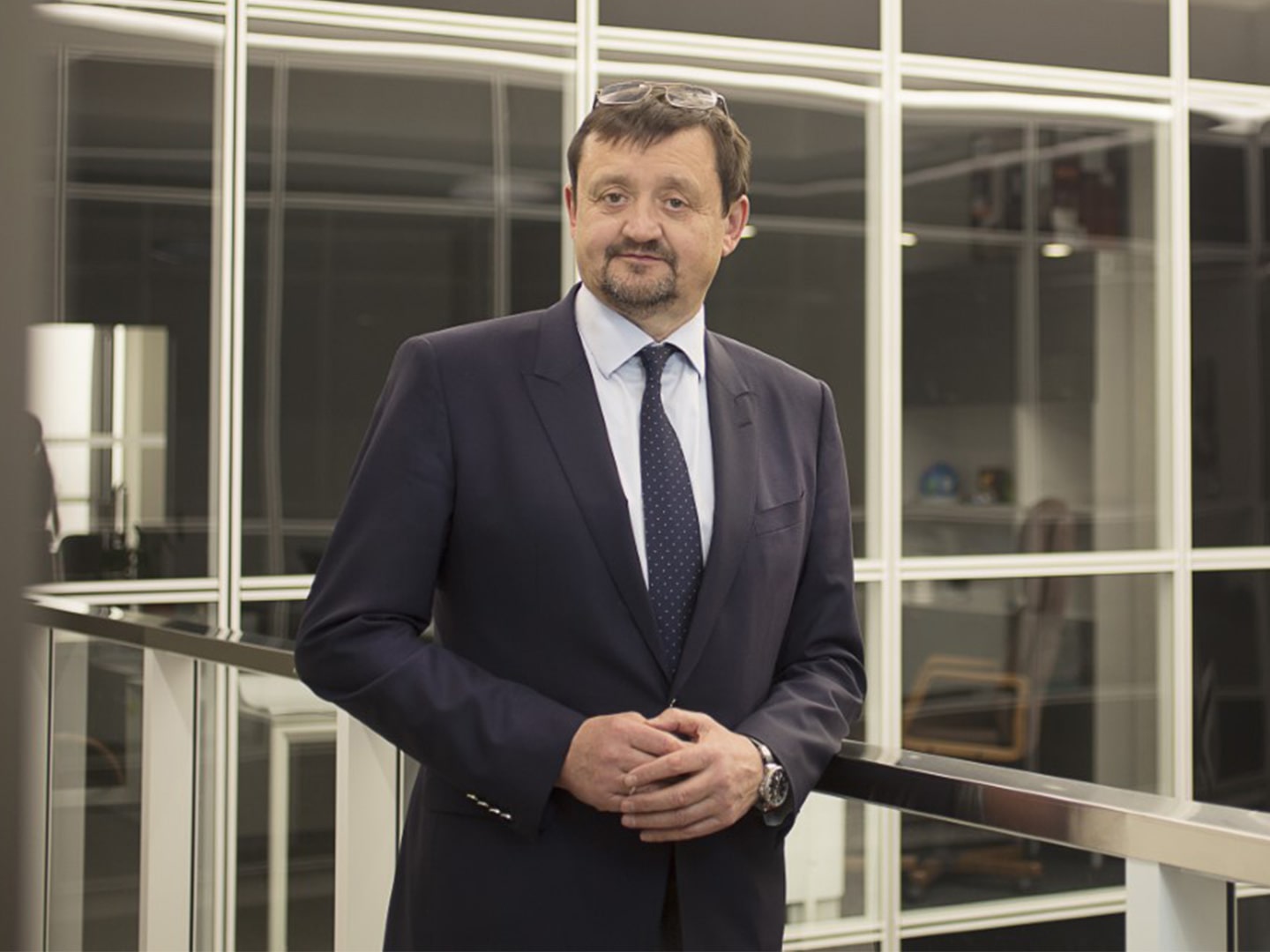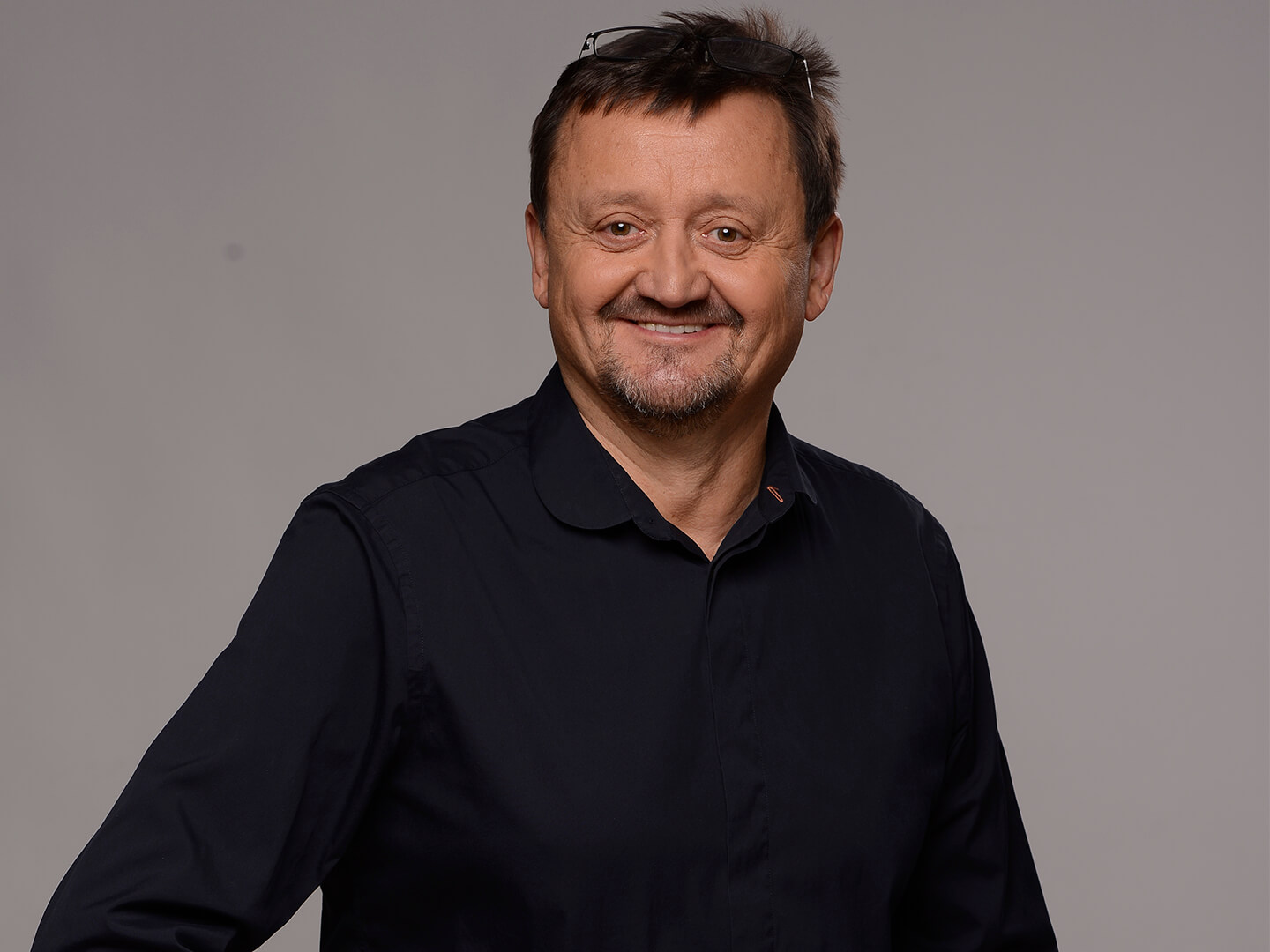The new pharmaceutical format

Yuria-Pharm Group is one of the largest pharmaceutical companies in Ukraine. Its core activities include the research and development, production, marketing and distribution of drugs and medical devices.
Today the company’s aim is to bolster innovation and our technological capacity. First and foremost, this means ensuring the group can scale up the work of its R&D centre and partner projects on an industrial scale.
DMYTRO DERKACH, CEO of Yuria-Pharm Group, talks about how his company continues to grow despite the internal and external challenges.
What challenges do your company and you have to respond to right now?
The pandemic has created a steady trend of accelerating change in most areas of our lives. In fact, what was expected to take years to happen has instead occurred in a year. In just a few months, we had to rethink the way we organise our work, and how we create and harness value. Digitalisation has spread to daily activities that just a few years ago were hard to imagine.
From now on, the most important corporate competence is the company’s ability to quickly respond to changes and to question what we have believed for years. The pandemic immediately became a test of the sustainability and demand for existing business models and management systems. So in the last two years, we have seen major market players become even stronger, while many weak companies will clearly not survive.
We realised the most important thing: power is not determined by size or influence, but by flexibility and adaptability combined with a systematic approach and readiness for change. In the pharmaceutical industry, a few years ago it was hard to imagine that a pharmaceutical company could develop and bring to market a new clinical solution for a particular disease in less than a year. Today this is possible.
How does your company remain a prominent market player?
We have long understood that we should compete not so much with products as with business models. In this case, the product, or even the product portfolio, is just one element of a comprehensive system for creating a sustainable competitive advantage. We never get upset when products similar to ours are brought to the market, as long as it is healthy competition.
On top of that, we believe this opens up additional opportunities to join forces to boost growth in this category of the market. From competition to cooperation — a term that is increasingly heard in business circles. From a competitive product to a competitive business model — this is how we stand out.
What innovations does the company use? How do they influence the corporate economy?
We believe we are an innovative company as we are always open to introducing something new. This is not just about products and technologies, but also about management systems in general. We create opportunities for experiments.
Along with that, we comply with standards while trying to come up with new ones. Some ideas that are introduced end up becoming innovations, i.e. they combine the novelty factor with future economic value. The level of effectiveness of our innovative activities is evidenced by the fact that in recent years, we have been able to maintain double digit annual growth and significantly increase profits.
What competencies should the manager of the future have, who is increasingly hampered by global ‘black swans’? What will be considered the criterion for a good decision?
Intuition, like analytics, is based on knowledge and experience. In my opinion, what matters is not what guides your decisions, but the quantity and quality of knowledge transformed into the experience. The main thing is the speed of decision-making, and, most importantly, the actions that follow it.
There are no right or wrong decisions. There are consequences that we are or are not ready for. We are guided by the premise that any decision is the best at the time of its adoption. The main thing is not to procrastinate. We even gain experience from our mistakes. And our goal is to gain experience as soon as possible.
The modern manager — a digital leader — is mostly a diplomat and strategist who needs very different qualities to succeed. Which exactly?
Today, a leader is the architect of a space where innovation and value are created. Awareness and respect for the ideas of each team member are the starting point for building a modern management system. We believe that team leaders should focus on helping everyone unlock their full potential.
Today we do not need to manage people, we need to create a collaborative environment that unites people with the desire to work together to create the value that society demands. This approach allows us to unlock everyone’s talent while creating striking synergies that become the basis for breakthrough market innovations.
How immersed are you in the operational management of the company?
The management system we have set up gives me no more than a 20% stake in the operational management of the group. For the most part, I keep track of and work only with system parameters that are critical to the implementation of strategies to achieve our vision in the medium and long term. For me, it is important to maintain the constant readiness of the system to communicate and change effectively.
What is the main question you ask at interviews of senior executives in your company?
For me the potential team member’s motives and values are important. I have to gain a clear understanding of why my future team member wants the position. I am interested in working with people who give answers such as “I have always dreamed of changing the world for the better by applying my talent and experience. I feel that I can do it here, together with you, working for your company.” My team should take initiative, not just follow orders, and should be united by a common goal.
How do you act under pressure? When there is a need to immediately act without any specific training?
I believe that the main thing in a crisis situation is to take action. Crises do not allow for procrastination. We have so-called quiet times for reflection, analysis, research and learning. In these times we must improve our skills and readiness to act under pressure. As for a plan of action, I always have at least two or even three scenarios to refer to.
What are you planning to do in the future? What are you most important projects?
Currently, these are projects to bolster innovation and our technological capacity. First and foremost, this means ensuring the group can scale up the work of its R&D centre and partner projects on an industrial scale. These are the projects to create high-tech solutions based on recombinant proteins, monoclonal antibodies, RNA molecules, cellular and gene therapy.
We are also working on adapting existing business models and creating new ones to fit the ‘new normal’ in the post-pandemic world.



